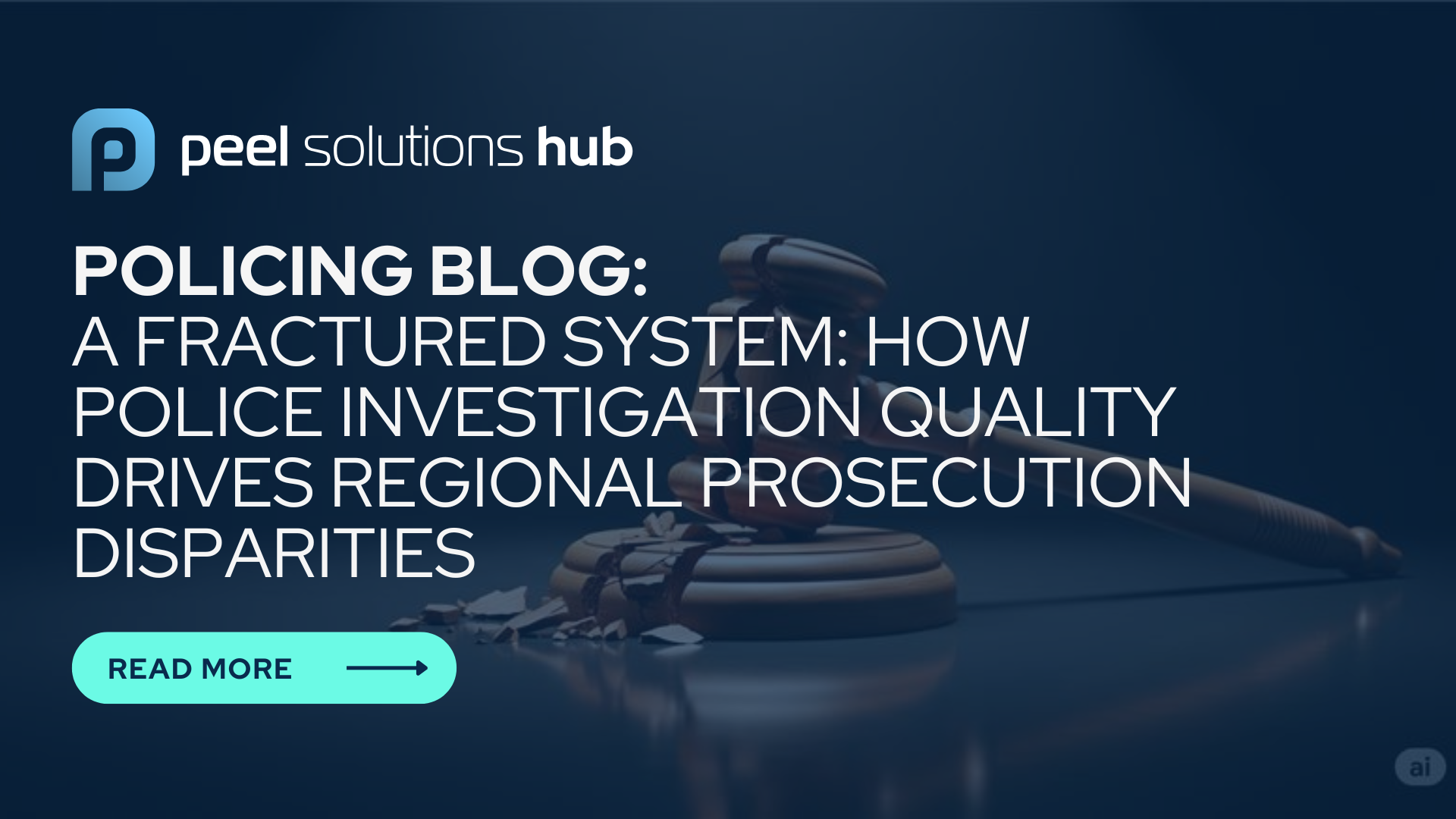A Fractured System: How Police Investigation Quality Drives Regional Prosecution Disparities
The principle of equal justice is a cornerstone of the UK's legal framework. Yet, recent data suggests that the path from a police investigation to a courtroom outcome varies significantly by region. While operational data from the Crown Prosecution Service (CPS) has consistently pointed towards disparities in prosecution outcomes, a thematic inspection report from His Majesty's Crown Prosecution Service Inspectorate (HMCPSI), published on 15 July 2025, provides critical insights into systemic challenges affecting rape prosecutions.
The inspectorate's report, "An inspection of early advice and pre-charge decision making in adult rape cases," reveals that regional disparities in justice outcomes are rooted in fundamental issues with case building and the partnership between police and prosecutors. With concerning findings about the quality of police work and prosecutorial analysis, the report depicts a system where structural problems create inefficiency and impact victims' access to justice.
This analysis examines the key findings from the HMCPSI inspection, explores how investigative challenges contribute to regional disparities, and considers the implications for police leaders, victim confidence, and the operational effectiveness of the criminal justice system.
The Inspectorate's Verdict: Systemic Challenges Identified
The July 2025 HMCPSI report provides an evidence-based assessment of pre-charge work in rape cases. HM Chief Inspector Anthony Rogers stated that prosecutors' "handling of rape cases at the pre-charge stage is not good enough – creating problems for cases as they proceed and risking a poor service to victims."
Police Case File Quality: A Persistent Challenge
The inspection identified significant issues with the quality of case files submitted by police forces, though specific percentages were not detailed in publicly available summaries. The report highlighted that many police pre-charge files failed to meet the required National File Standard.
This finding aligns with broader patterns identified in HMICFRS inspections. Recent HMICFRS data reveals that among forces inspected for investigating crime effectiveness, none received "Good" or "Outstanding" grades at the time of publication, indicating widespread challenges in investigative standards. It should be noted that these grades are dynamic, and future inspections may alter this picture. Common issues identified include:
- Deficiencies in handling unused material and disclosure obligations
- Incomplete information required under the Director's Guidance on Charging (DG6)
- Digital forensic capacity constraints
The digital evidence challenge is particularly acute. HMICFRS reported in December 2022 that more than 25,000 devices were awaiting examination across police forces in England and Wales, creating significant delays in investigations.
CPS Performance: Room for Improvement
The HMCPSI report identified that the quality of CPS case analyses and strategies also requires substantial improvement, though specific performance metrics were not detailed in public summaries. The inspection found issues with both the thoroughness and strategic approach of prosecutorial work at the pre-charge stage.
This finding reinforces concerns about systemic weaknesses across the criminal justice system, where challenges in both investigation and prosecution compound to affect overall outcomes.
Workforce Experience and Training Gaps
A significant factor contributing to these challenges is workforce experience. Current data shows that 38% of police officers have fewer than five years of service, reflecting a relatively inexperienced workforce facing complex investigative demands.
The HMCPSI report emphasised the need for a more consistent 'suspect-centric approach' to investigations, noting that both investigators and prosecutors sometimes focus disproportionately on victim credibility rather than building robust cases through comprehensive suspect investigation.
Why This Matters for UK Policing
These inspectorate findings have direct consequences for police forces, affecting operational efficiency, public trust, and justice outcomes.
Inefficiency and Delay
Poor-quality case files create a cycle of rework between police and CPS. As noted in the CPS response to the inspection, "inconsistent timeliness of police responses to action plans remains a source of delay." This inefficiency consumes valuable resources and extends the justice timeline for victims.
Impact on Victim Confidence
The HMCPSI inspection found that the service provided to victims at the pre-charge stage was inadequate. The report identified issues with prosecutors not proactively addressing victim support needs, including consideration of bail conditions and protective orders. When victims experience delays and poor communication, their confidence in the justice system erodes, increasing the risk of withdrawal from the process.
Partnership Challenges
The inspection confirmed that structural issues have created tensions between police and CPS. Effective criminal justice requires seamless collaboration, but when partnership working is hampered by quality issues and communication gaps, the entire system's effectiveness is compromised.
Regional Variations: The Evidence
While the HMCPSI report doesn't provide regional breakdowns, CPS performance data reveals significant geographical disparities. In Q3 2024/25, conviction rates varied from 74.3% in CPS London South to 86.5% in CPS Merseyside and Cheshire (CPS Data Q3 2024/25) - a 12 percentage point gap that raises questions about consistency in justice delivery.
These regional variations, combined with the systemic issues identified by HMCPSI, suggest that access to justice may indeed depend partly on geography - a troubling reality for a system founded on equality before the law.
Moving Forward: Addressing the Challenges
The HMCPSI inspection provides a crucial diagnostic of current challenges. For senior police leaders and criminal justice professionals, several priorities emerge:
- Improving File Quality: Forces must prioritise compliance with National File Standards, ensuring comprehensive evidence packages from the outset.
- Workforce Development: With over a third of officers having limited experience, structured training and mentoring programmes are essential, particularly focusing on suspect-centric investigation approaches.
- Digital Capability: Addressing the digital forensics backlog requires investment in both technology and specialist skills.
- Partnership Working: Police and CPS must work collaboratively to streamline processes and improve communication, reducing inefficiency and delay.
- Victim Focus: Ensuring victims receive appropriate support throughout the pre-charge process is crucial for maintaining confidence and securing successful outcomes.
Conclusion
The HMCPSI's inspection confirms that challenges in rape case prosecution stem from systemic issues affecting both police investigations and CPS decision-making. While regional variations in outcomes are evident from CPS data, addressing these disparities requires tackling fundamental problems with case building, workforce capability, and inter-agency collaboration.
For the criminal justice system to deliver on its promise of equal justice, these "not good enough" standards must be urgently addressed. This means investing in people, processes, and partnerships to ensure that regardless of postcode, every victim receives the same quality of investigation and every case is built to the highest standard.
The path forward requires commitment from all criminal justice partners to implement the improvements identified by HMCPSI, ensuring that the fractured system is repaired and justice is delivered consistently across all regions.
Sources:
- HMCPSI, An inspection of early advice and pre-charge decision making in adult rape cases, 15 July 2025
- CPS, Crown Prosecution Service response to HMCPSI inspection of early advice and pre-charge decision making in adult rape cases, 15 July 2025
- CPS, CPS Data Summary Quarter 3 2024-2025, 2025
- Police Professional, CPS's early handling of rape cases must urgently improve, says HMCPSI, 15 July 2025
- Association of Police and Crime Commissioners, Statement on criminal justice improvements, 17 July 2025
- HMICFRS, Digital forensics: An inspection of the police service's ability to process digital evidence, December 2022
- Home Office, Police workforce statistics, 2025

James Jeram
James Jeram joined Peel Solutions in 2023 to establish and lead its professional services and consultancy division. With over eight years of experience supporting UK law enforcement, central government, and the wider public sector, James brings a wealth of expertise and a deep commitment to driving positive change across these vital industries. His dedication to maintaining strong human connections whilst delivering innovative solutions stems from his extensive experience in the sector and understanding of what truly makes a difference in law enforcement support services.

